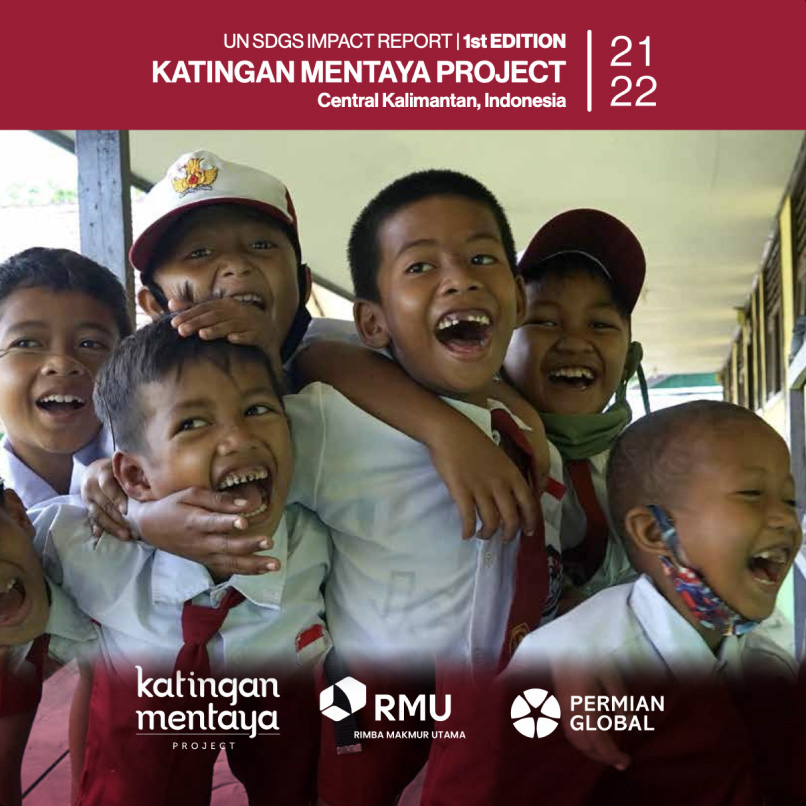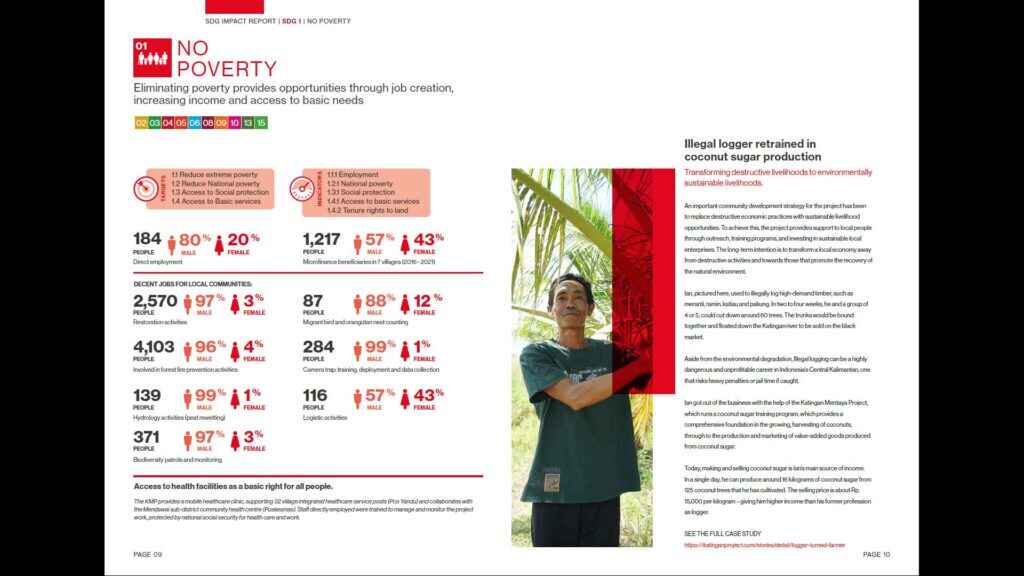
The Katingan Mentaya Project, a 150,000 ha peatland conservation initiative in Indonesia, is delivering progress against all 17 of the United Nations Sustainable Development Goals (SDGs).
This is the first comprehensive assessment of SDG impacts by the project, which has been operating since 2010 and is financed through verified emissions reductions (VERs).
“The SDG targets not only reflect our commitments but also provide an important indicator for natural-climate solutions (NCS) like the Katingan Mentaya Project, because it demonstrates the interconnectedness of the challenges we are working to address” explains Taryono Darusman, General Field Manager, Katingan-Mentaya Project. “By preventing emissions from deforestation and the clearing of peatland, we’re safeguarding a vital biodiverse habitat. And by working to improve the wellbeing and livelihoods of local people, we are embedding environmental protection and sustainability across the region.”
The Katingan Mentaya Project is a case study in how, when applying the best science and holistic, collaborative development planning, carbon finance can deliver on climate, biodiversity and community development goals. The newly compiled SDG impact report helps demonstrate the breadth of the work being achieved by the project and the benefits that can be derived from high quality carbon credits.
For SDG 2, Zero Hunger, an example of progress includes the Agroecology Farming Training Program the project is providing to help improve sustainability for local farmers. One graduate, Aliansyah, explained: “Promoting a no-burn, chemical-free farming approach is one of the methods to fight climate change. Education and working together with other farmers is key. Transitioning to a sustainable method while ensuring an increase in productivity for the farmers may determine this as a long-term alternative.”
As part of progress against SDG 3, Good Health and Wellbeing, the project is working with local officials to provide health care to remote villages around the project. Due to lack of road access, the service is delivered via the waterways. “We call it floating health service as the facilities are transported by long boats through the river to reach areas which otherwise would take hours to reach by land, “said project Public Health Specialist, Bellini Simangunsong.
The data used to assess SDG progress has been collected from across the project as part of its annual audit as per the verification process under the Verra Verified Carbon Standard (VCS) and the Climate, Communities, and Biodiversity Standard (CCB). Additionally, the project collects regular data through internal staff reporting systems and periodic reconfirmation of the Memorandum of Understanding (MOU) agreements with the 35 villages in the project zone.
All collected data is compiled in the SIRETA database, which also tracks and assesses SDG progress. The project is divided into six zones, and data on activities and development is collected quarterly by the project zone teams. The data is thoroughly checked against previous reviews and verified on the ground.
Based on the data, it was confirmed that in 2022, the project supported and contributed to 17 of the UN SDGs, reaching 70 targets and 68 indicators. The report emphasizes the concept of crosscutting, which means understanding how progress in one goal can impact other goals. It advocates for implementing strategies that address multiple goals simultaneously, recognizing the interconnectedness of the 17 goals. The report visually represents all the applicable crosscutting SDGs.
To read the report: KMP UN SDG Report_2021 2022


For media inquiries, please contact:
[David Stone]
[Permian Global/RMU]
Notes to editors
The Katingan Mentaya Project is a 157,800 ha protection and restoration project in Central Kalimantan, Indonesia. It is managed by PT Rimba Makmur in partnership with Permian Global.
About PT Rimba Makmur Utama
PT Rimba Makmur Utama (RMU) is Indonesia’s leading nature-based solution enterprise at the forefront of combating the climate crisis. RMU works with partners to focus on shifting intent to action to positively impact the interconnected ecosystems of climate, community and biodiversity. RMU’s vision is a world economy that is earth and people first, and its mission is to empower a new generation of leaders and changemakers. RMU applies systems thinking to initiate a restorative and regenerative economy. The Company is a signatory to implement the ten principles of the UN Global Compact, and is B-Corp certified.
For more information, visit Home | Rimba Makmur Utama
About Permian Global
Permian Global is a tropical forest conservation project developer. By preventing deforestation and forest degradation, Permian Global is helping mitigate climate change, enabling the restoration of vital biodiverse ecosystems; and supporting local communities and local economic growth.
Headquartered in the UK, the international team works with governments and local communities across Asia, Latin America and Africa.
For more information, visit Permianglobal.com
Buy carbon credits from Katingan
Climate change is a global challenge that requires global action. We can help you meet your commitments to deliver a brighter future.


